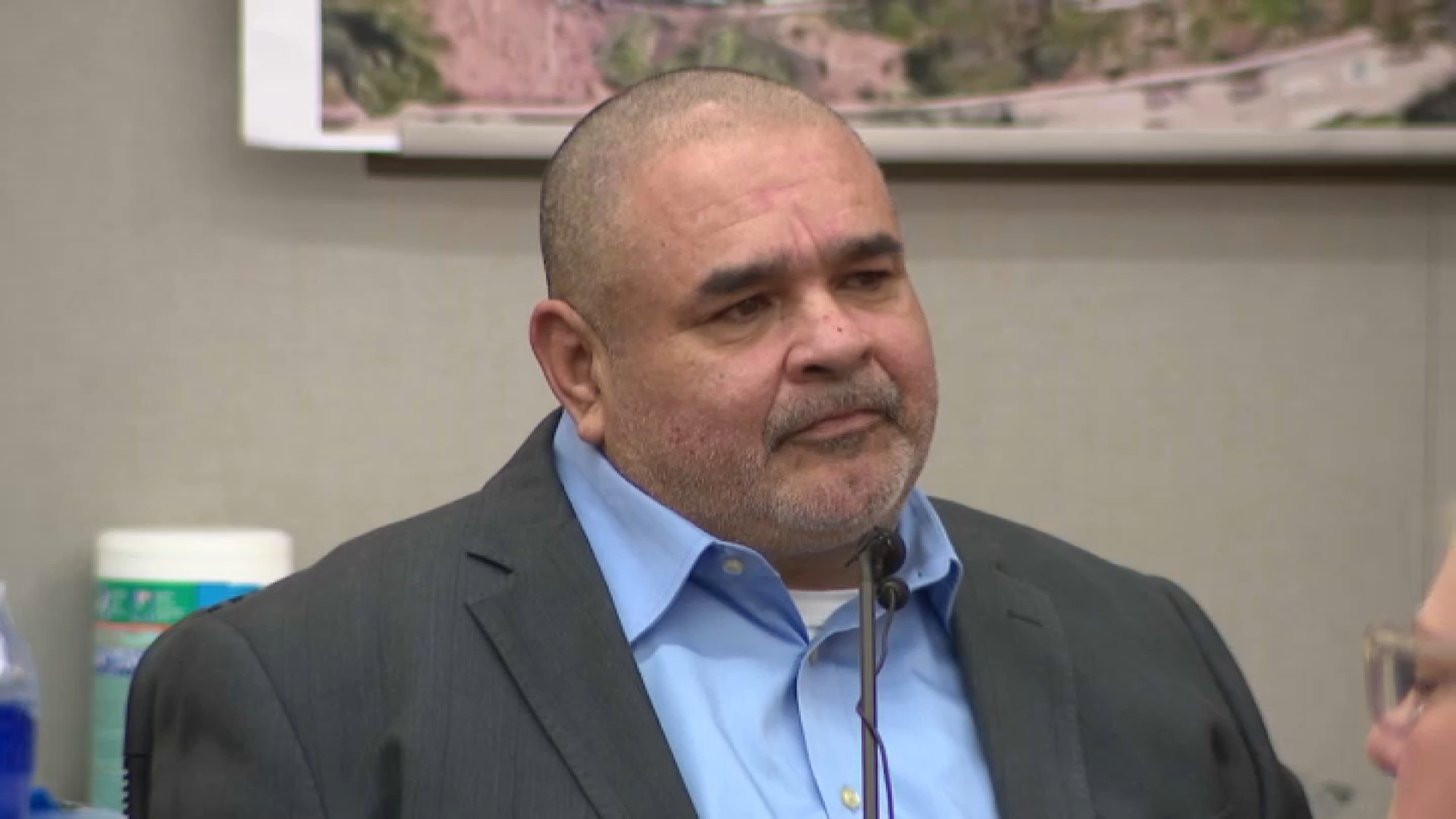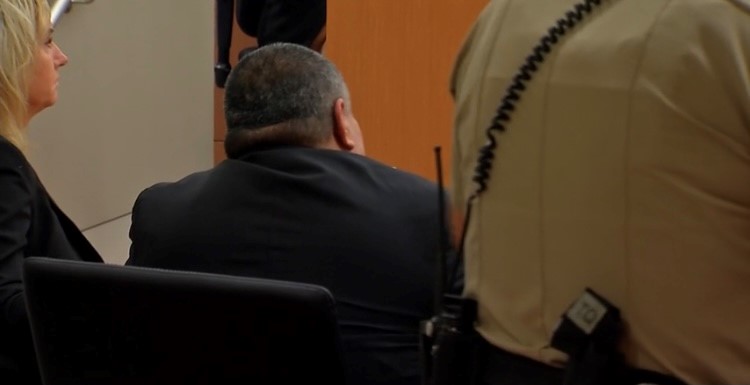On Friday, a San Diego Superior Court judge sentenced a man to death who was convicted last year of shooting two San Diego police officers, killing one of them.
A San Diego jury recommended the death penalty for Jesse Michael Gomez, 57, who was convicted of first-degree murder for the July 28, 2016, shooting death of Jonathan "J.D." De Guzman, 43. The jury also convicted Gomez of the attempted murder of De Guzman's partner, Wade Irwin, as well as a count of being a felon in possession of a firearm.
Jesse Gomez Trial
More on the convicted killer.
De Guzman, a 16-year veteran of the San Diego Police Department, died at a hospital, while Irwin was hospitalized for nearly a month for a gunshot to the throat.
Get San Diego local news, weather forecasts, sports and lifestyle stories to your inbox. Sign up for NBC San Diego newsletters.
Prior to Friday's sentencing, Gomez's defense attorneys presented a series of motions to Judge Frederick Link that were denied, including the argument that their client should not get the death penalty because of racial bias, claiming Gomez was only stopped on the night of the shooting because he was a Hispanic man walking down the street. The defense equated it to “driving while Black."
The defense also argued that the DA’s office has shown racial bias in death penalty cases, claiming that in San Diego County death penalty cases in the past five years, “all White people have settled. All Brown people have not.” The argument included the case of 2019 Poway synagogue shooter John T. Earnest.
Prosecutors countered, however, that there have been many more shootings involving police, and because some defendants were juveniles, the death penalty was not sought in those cases.
Link told the courtroom that in order to set aside the death penalty, the defense had to prove racial bias against the defendant, which is covered under the Racial Justice Act but that “none of this was shown.” Link then officially denied the motion to set aside the death penalty.
A tearful Jane De Guzman, Officer De Guzman's widow, read a statement to the court, describing how she talked to her husband in the moments before the shooting, recalling that he had said, “I love you, too, hon. I’ll be home soon.”
Gomez also addressed the court.
“I just want the De Guzman family to know this was not an intentional act," Gomez said, adding that he would trade places with De Guzman if he could.
When it came time for Irwin to address the court, at one point he addressed Gomez specifically, telling him that when the day comes to execute Gomez, he wants Gomez to look over at him because Irwin will be watching just like the day Irwin had to watch Gomez kill his partner.
Finally, the time came for Link to pronounce the sentence.
"What makes this fellow different and apart from others is that he executed a police officer," Link told the assemby. "Officer De Guzman was in his seat…. He was strapped in and couldn’t get out.”
The Trial
Last November, Link ruled that the "weight of the evidence supports the jury's verdict of death," denying a defense motion to set aside the jury's recommendation.
Gomez's attorneys said at the time that they would still argue that capital punishment should be set aside in light of the California Racial Justice Act, a new law prohibiting the state from pursuing convictions or sentences on the basis of race, ethnicity or national origin.
Prosecutors say the two officers were patrolling Acacia Grove Way just before 11 p.m. the day of the shooting when they spotted Gomez and another man split up and start walking along the north and south sidewalks of the street. Irwin testified that after they followed Gomez at slow speeds in their patrol car, he got out of the vehicle and asked Gomez something to the effect of, "Do you live around here?"
Gomez, who testified on his own behalf, said he did not realize the men who approached him were law enforcement and instead thought they were gang members poised to kill him.
He testified that he only recognized that a car with its fog lights on was following him, but said he found the manner in which it was traveling "pretty suspicious."
Gomez testified that after the car stopped, the headlights turned on, obscuring his vision, and a man got out and asked him, "Where are you from?" According to Gomez, that question is a common gang challenge, which in his experience growing up in Shelltown means a violent encounter is soon to follow.
He testified that, fearing for his life, he opened fire on the "silhouette" of the man who posed the question, as well as the car. When asked to describe what was running through his mind at the time, he said, "I thought gang members were going to shoot and kill me."
Irwin testified that Gomez faced him with an "angry, hateful look on his face," then "immediately" raised his hand and shot him in the throat, before walking toward the police car and firing multiple times on De Guzman.
Prosecutors allege Gomez, who had prior run-ins with the law and was illegally carrying a firearm when he was contacted, shot the officers because he was not going to risk going to jail again.
After De Guzman was shot, Irwin drew his gun and fired on the shooter, who was running eastbound, according to the prosecution.
A blood trail from the shooting scene led police to an unconscious Gomez, who was taken into custody in a ravine off South 38th Street, a short distance from the scene, and hospitalized with a gunshot wound to his upper body.



